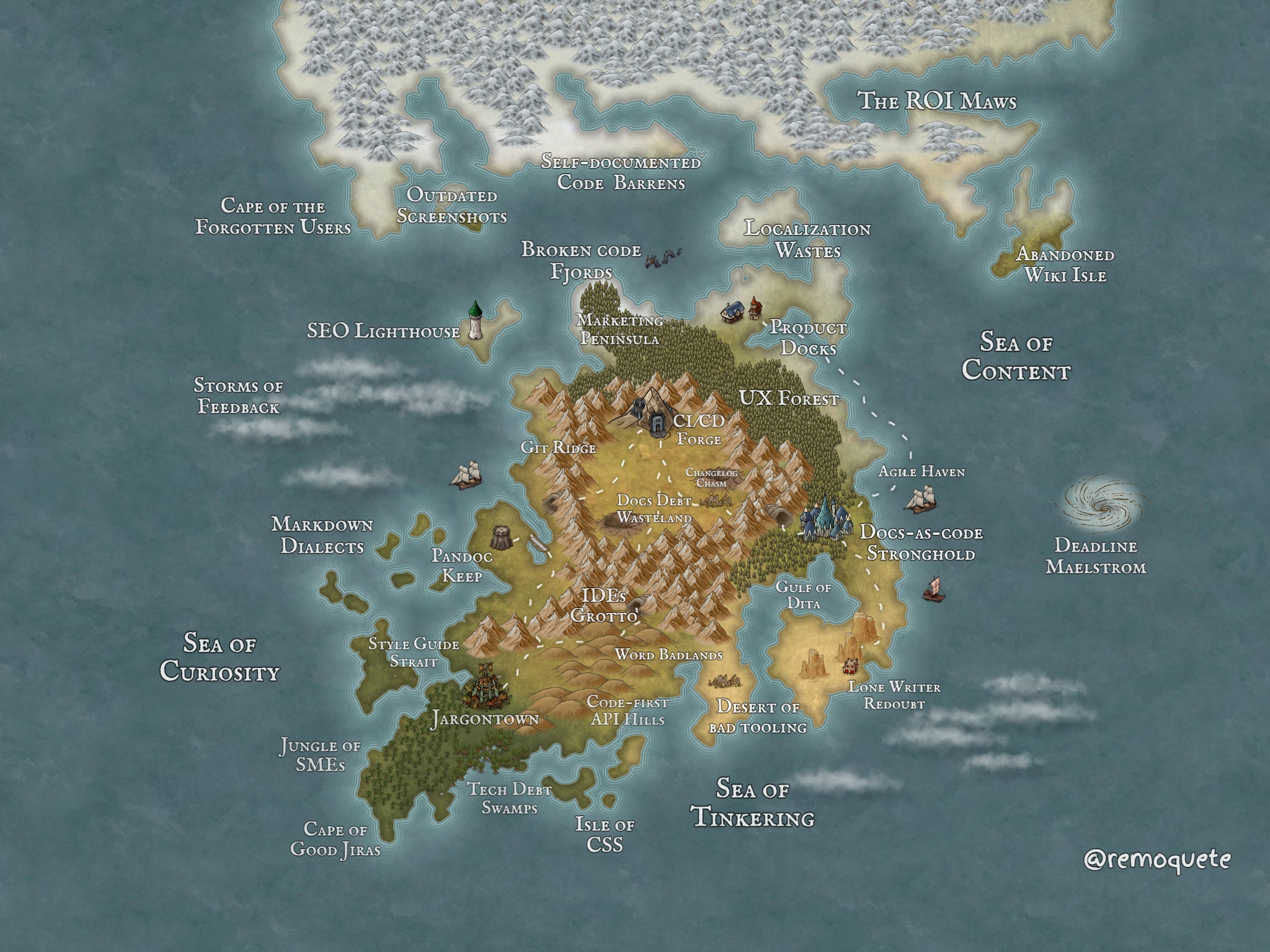I’m Fabrizio Ferri Benedetti, a technical writer based in Barcelona, Spain.
Once Upon a Time There Were... Docs
Here are the video and abstract from my talk Once Upon a Time There Were… Docs from Write the Docs Atlantic 2023.
Tips for job hunting as a technical writer
I’ve been working as a writer in tech for more than 15 years now. During this time I’ve been at five different companies. I’ve done tons of interviews and got more than a dozen offers, some of which I ended up accepting. It didn’t always start with clicking “Apply”; it didn’t always go as expected. Whatever the outcome, though, I learned a thing or two which I’d like to share.
An experiment in humorous documentation
A few days ago I published a repository for the English Programming Language, a tongue-in-cheek parody of README files. I had a hunch and posted it on Hacker News at 3 AM. When I woke up, the repo was on the front page and already racked up 200 stars on GitHub. Not bad for a nerd joke.
But then again, why would someone write humorous technical documentation?
A tech writer's letter to software developers
Dear software developer,
You might have heard about technical writers, those mythical creatures. You might even be working with one. Whatever the case, I’d like to send you advice on how to achieve a healthy work relationship with technical writers so that you can get the best possible documentation for your product.
How did I become a technical writer
A friend asked me the other day how I became a technical writer. The question gave me pause and made me realize that, while I wrote about how to become a technical writer, I hadn’t yet written how I had become one. For all who may be interested, here’s how I got to work as a tech writer.
Docs-as-code topologies
Should docs stay with the code they document? Or should they rather be in a separate repo, fully managed by tech writers and docs site developers? The matter of where docs should be living when doing docs-as-code isn’t easy to untangle. With the following topologies I’ve tried to describe situations I’ve found myself into or seen in the wild. Each has its own pros and cons, though only the last is my favorite.
Episode 33 of API the Docs podcast
I’ve enjoyed doing this one a lot!
Thanks Laura Vass and API the Docs! :-)
We need more technical writing in popular culture
Laura Vass from API the Docs asked me the other day why technical writing has such a bad rap. My answer was that technical writing’s real problem is not having a rap at all: not only is our profession relatively unknown, it almost never appears in popular culture. A solution to this would be to start featuring tech writers and documentation in all kinds of media, from TV series to movies to video games, something it’s barely happened.
High fantasy map of technical writing
Had some fun designing this technical writing map using Inkarnate. Because tech writing feels like a high fantasy quest at times.

My technical writing gear (how I work)
Technical writing requires appropriate gear to be done in a way that’s both healthy and productive. While it’s true that communicating with subject-matter experts and writing documentation can be done on a tiny Chromebook, I would compare such an experience to driving all the way from Chicago to San Francisco on a BMW Isetta: feasible, though not very comfortable nor fast, and certainly not fun for your derrière.